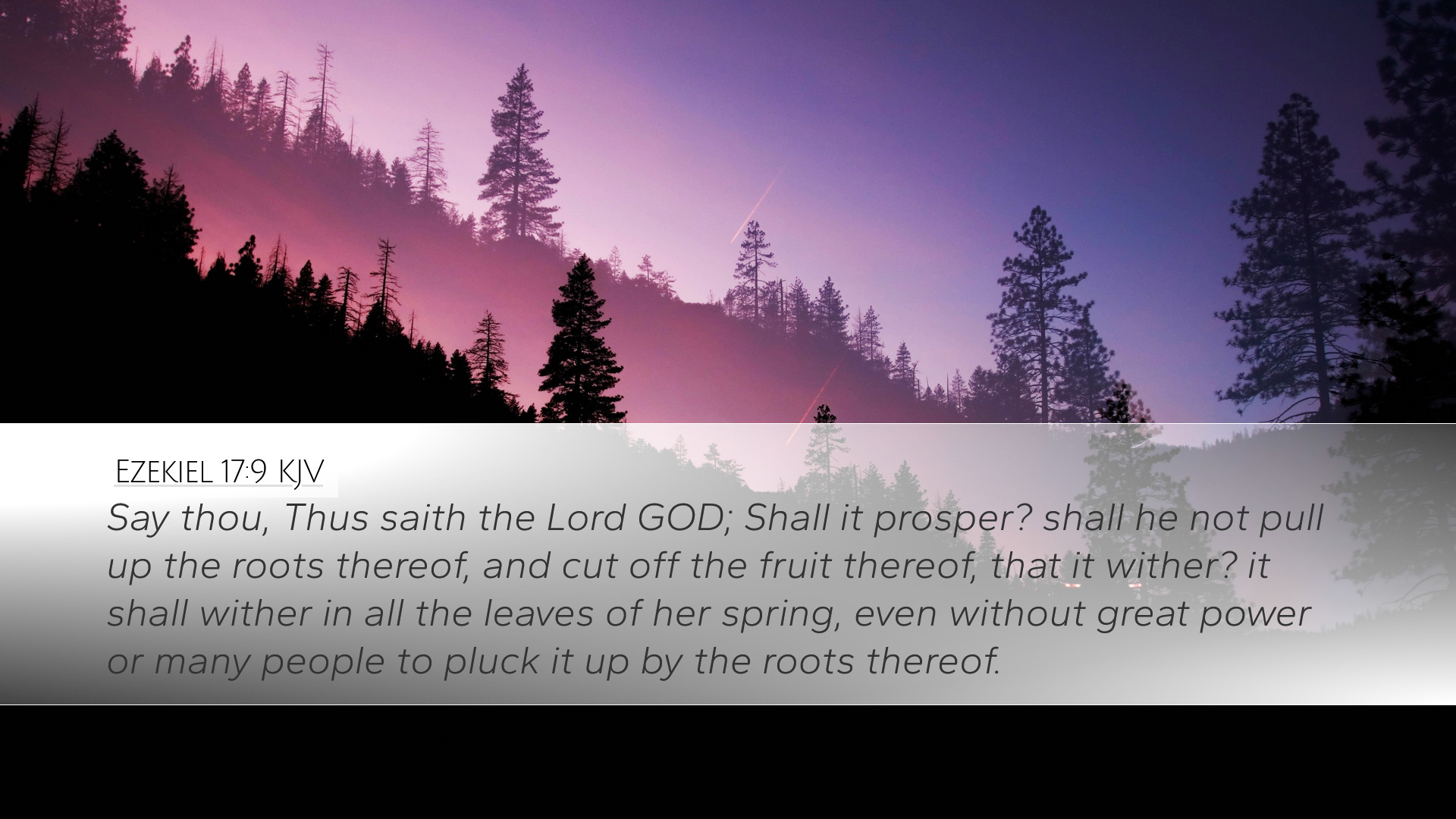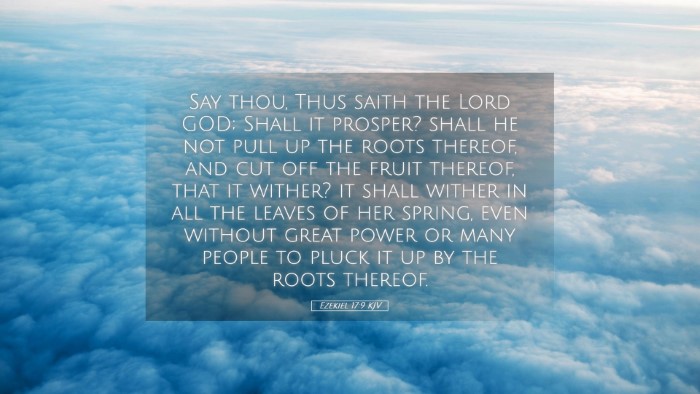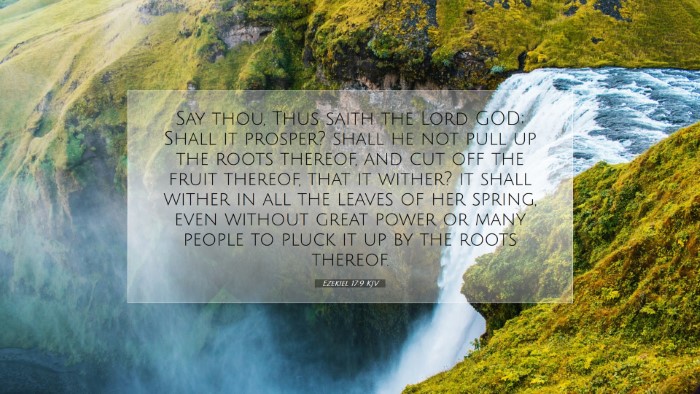Ezekiel 17:9 - Commentary Overview
Ezekiel 17:9 states: "Say thou, Thus saith the Lord God; Shall it prosper? Shall he not pull up the roots thereof, and cut off the fruit thereof, that it wither? It shall wither in all the leaves of her spring, even without great power or many people to pluck it up by the roots thereof."
Contextual Background
This verse is situated in a prophetic context where Ezekiel speaks of the fate of the kingdom of Judah. The imagery of a tree illustrates Judah's political alliances, specifically the alliance with Egypt against Babylon. The prophecy illustrates God’s sovereignty over nations and the inevitable decline of Judah due to their disobedience.
Exegetical Insights
Matthew Henry's Commentary
Matthew Henry emphasizes the certainty of God's judgment on those who fail to heed His warnings. He notes the phrase "Shall it prosper?" as a rhetorical question asserting that despite their efforts, their plans will ultimately fail. The imagery of the tree being uprooted signifies not only destruction but also a divine intervention that cannot be resisted. Henry points out that this verse serves as both a warning and an assurance that God will act against unfaithfulness.
Albert Barnes' Notes
Albert Barnes provides a thorough analysis of the metaphor presented in this verse. He states that the "roots" symbolize the foundational strength of the kingdom which, when pulled up, symbolizes total destruction. Barnes also reflects on the failure of alliances, noting that Judah's hope in Egypt would prove fruitless. The term "cut off the fruit" suggests that the expected rewards of their efforts will not materialize. He stresses the powerlessness of human efforts in comparison to God's will.
Adam Clarke's Commentary
Adam Clarke views this verse as a revelation of God’s omnipotence in determining the fate of nations. He highlights that the metaphor of the leafless tree conveys the idea that what once was vibrant and promising will become desolate. Clarke underscores the importance of receptivity to God's guidance, indicating that the withering is a consequence of a lack of alignment with His purposes. Clarke's interpretation serves as a pastoral reminder of the necessity of faithfulness to God’s decrees.
Theological Implications
This verse has profound theological implications for understanding God's relationship with His people. It illustrates the principle of divine sovereignty and the futility of human plans that are contrary to God's will. The imagery of a tree emphasizes the nurturing aspect of God’s care, while its destruction serves as a warning about the consequences of unfaithfulness. This duality reflects God's justice and mercy, inviting those in ministry and study to reflect on their own faithfulness and reliance on divine guidance.
Practical Applications
- Pastoral Reflection: Pastors should consider how they communicate God's warnings about unfaithfulness to their congregants, emphasizing the importance of obedience and alignment with His purposes.
- Scholarly Analysis: Theologians may study the relationship between divine sovereignty and human free will as illustrated in this passage, exploring how these concepts interact in the biblical narrative.
- Personal Application: Students of the Bible can reflect on their own lives in relation to the 'root' metaphors, assessing what they are building and nurturing in their walk with God.
Conclusion
In summary, Ezekiel 17:9 delivers a poignant message about the sovereignty of God in history and the consequences of unfaithfulness. Drawing from the insights of Matthew Henry, Albert Barnes, and Adam Clarke, this passage calls for a deep introspection about one’s alignment with God’s will. It serves as a bleak reminder that human plans outside of God’s purposes will inevitably lead to futility, yet it simultaneously offers hope for those who remain steadfast in faithfulness.


